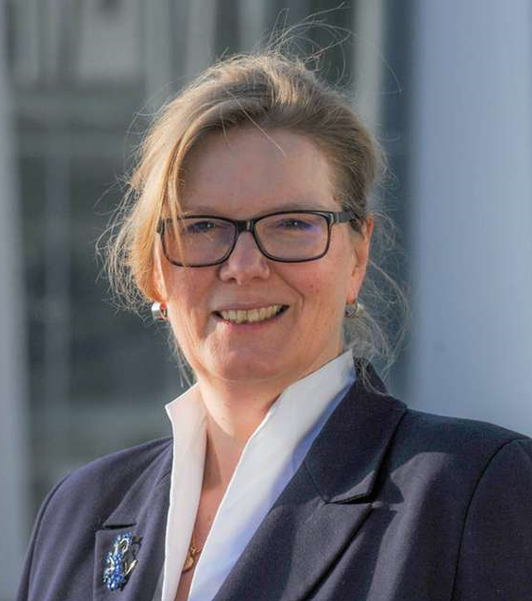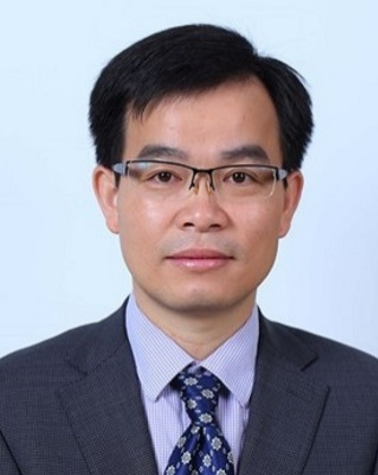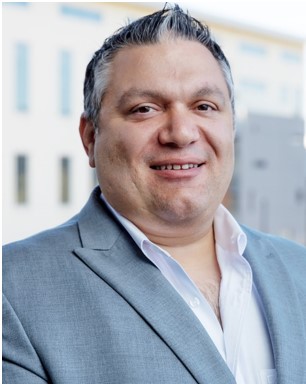- Home
- Call for papers
- Committees
- Abstract and Paper submission
- Registration
- Publication and Awards
- Keynote Speakers
- Programme ▼
- Programme
- Resilient and agile production systems I
- Manufacturing I
- Smart manufacturing
- Additive manufacturing
- Resilient and agile production systems II
- Manufacturing II
- Process monitoring and quality management
- Design - Robotics
- Customization and configurators
- Digital twins
- Sustainable manufacturing
- Operator assistance
- Past Years

|
|
|
Keynote Speakers
|
|
Title: Managed control software evolution as a key success factor to sustainable, resilient, and agile manufacturing and service operation Univ.-Prof. Dr.-Ing. Birgit Vogel-Heuser, Institute of Automation and Information Systems, Faculty for Mechanical Engineering, Technical University of Munich, Munich, Germany Biography: Birgit Vogel-Heuser received a Dr.-Ing. degree in Electrical Engineering and a Ph.D. degree in Mechanical Engineering from RWTH Aachen University, Aachen, Germany, in 1991. She was involved in industrial automation with the machine and plant manufacturing industry for nearly ten years. After holding different chairs of automation, she has been Head of the Automation and Information Systems Institute at the Technical University of Munich, Munich, Germany, since 2009. Her current research focuses on systems and software engineering. She is a member of the acatech (German National Academy of Science and Engineering), editor of IEEE T-ASE, and member of the science board of MSRM at TUM. Abstract: Control software is often the best or sometimes the only opportunity to adapt manufacturing systems to new products or changed requirements and to realize agility and resilience. Consequently, the evolution of control software is mandatory but still a huge challenge for, on the one hand, machine and plant manufacturers due to the required variant and version management, updates, and additional services over decades despite changing automation platforms and operating systems. And on the other hand, operating companies need to continuously optimize their machines’ or plants’ operation even across different sites. Three synergistically related methodologies to address these challenges will be introduced: First, ontologies to automatically decide whether a new product may be produced on the available machines or plants or which control software changes/updates are required to enable it. Second, to enable such agile adaptation - maybe even during operation – promising methods for control software refactoring and continuous quality management are introduced. Last but not least, this is also the prerequisite for field-level agents that adapt automatically operating manufacturing systems in case of faulty components to address resilience. |
|
|
Title: Digital Twin Driven Smart Manufacturing Prof. Fei Tao, School of Automation Science and Electrical Engineering, Beihang University, Beijing, China Biography: Dr. Fei Tao is currently a Professor at the School of Automation Science and Electrical Engineering, and the Vice-Dean of Institute of Science and Technology of Beihang University. His current research interests include digital twin driven product design/manufacturing/service, service-oriented smart manufacturing, manufacturing service management and sustainable manufacturing. In these fields, he has published 4 monographs as the first author and over 70 papers in Nature, CIRP Annals and IEEE/ASME Transactions, of which 20 are ESI high cited papers. His publications have over 18000 citations in Google Scholar, and Prof. Fei Tao was named Global Highly Cited Researcher in 2019 and 2020 by Clarivate Analytics. He was also invited to give more than 30 keynote at international conferences held in the US, Russia, Japan, UK and other countries. He is currently the CIRP Associate Member, Executive Chief Advisor of Digital Twin, editor of the International Journal of Service and Computing-Oriented Manufacturing (IJSCOM), and associate editor of Robotic and Computer Integrated Manufacturing (RCIM). Abstract: The global academic research of digital twin (DT) is first investigated in USA, Germany, and China, where current research status and a comparative analysis of digital twin research is given out. Industry applications of digital twin are then summarized, especially the application of digital twin shop-floor with its evolution, mechanism, key technologies and implementation. The five dimensional DT model with its ten Applications will be introduced, either. Meanwhile, other applications of digital twin besides manufacturing, including healthcare, city management, etc will be presented. In order to better understand and use digital twin, some hot topics related to digital twin will be discussed, such as the concept of digital twin, the establishment of digital twin model, the applicable guideline of digital twin, standards of digital twin, and so on. In addition, to cope with the challenges posed by COVID-19, it discusses roles of digital twin and other new information technologies in rapid manufacturing for emergency response. At last, other related works of digital twin from the reporter’s team are introduced.
|
|
|
Title: Adaptive and Agile Pharmaceutical Manufacturing through Cognitive Cyber-Physical Eco-system Dr. Ramy Harik, Chief Manufacturing Officer at Nephron Pharmaceuticals, Associate Professor of Mechanical Engineering, University of South Carolina Biography: Dr. Ramy Harik, a Fulbright Scholar, is an Associate Professor in the Department of Mechanical Engineering at the University of South Carolina and the Chief Manufacturing Officer at Nephron Pharmaceuticals. He has his PhD in Industrial Engineering from Lorraine University (2007), and Masters in Automated Production from Lorrain University (2004) and Mechanical Engineering degree from the Lebanese University (2003). He has 100+ publications and over $4 million dollars of funding from NASA, Boeing, Toray, NIH and other agencies. Abstract: The unforeseeable COVID outbreak is demanding drastic capacity from the US pharmaceutical industry, where severe drug shortages and large-scale vaccine (and eventually booster) production are unprecedentedly challenging the agility of the global supply chain, resource planning, decisionmakers, and production facilities. Empowering facilities to autonomously discover, plan and control dynamic production schedules driven by governmental drug shortage listings and emergent surgery priorities, will inject the current pharmaceutical manufacturers with new vitality to undertake life-saving responsibilities. This talk discusses a complete cognitive eco-system of digital twins, PharmaNext, which will capture, analyze, understand, and adapt pharmaceutical production facility status, perform edge analytics, identify anomalies, and elevate enterprise intelligence to prescriptive analytics level through an innovative autonomous semantic integration philosophy.
|
| Online user: 2 | Privacy |

|



